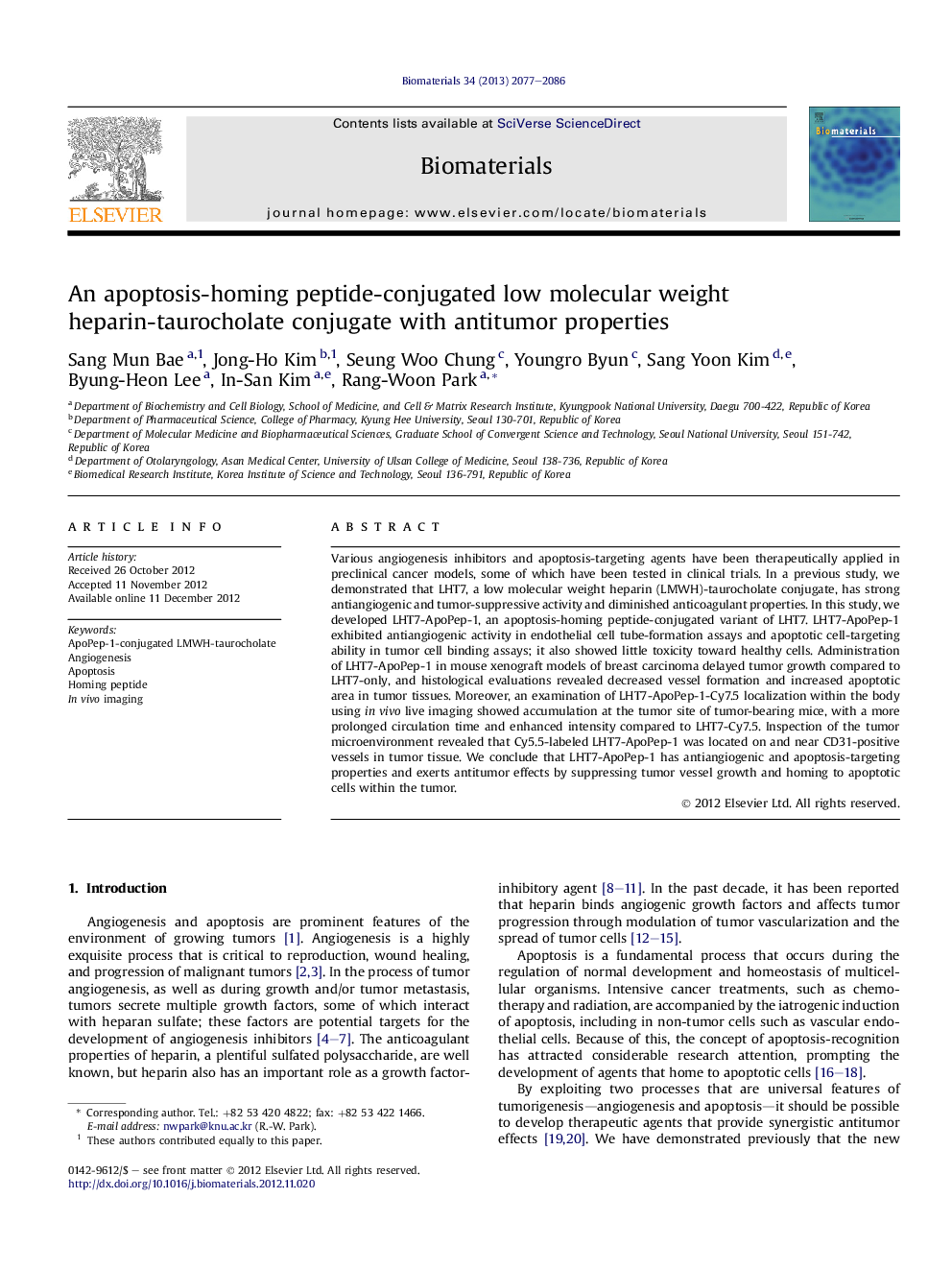| Article ID | Journal | Published Year | Pages | File Type |
|---|---|---|---|---|
| 10228651 | Biomaterials | 2013 | 10 Pages |
Abstract
Various angiogenesis inhibitors and apoptosis-targeting agents have been therapeutically applied in preclinical cancer models, some of which have been tested in clinical trials. In a previous study, we demonstrated that LHT7, a low molecular weight heparin (LMWH)-taurocholate conjugate, has strong antiangiogenic and tumor-suppressive activity and diminished anticoagulant properties. In this study, we developed LHT7-ApoPep-1, an apoptosis-homing peptide-conjugated variant of LHT7. LHT7-ApoPep-1 exhibited antiangiogenic activity in endothelial cell tube-formation assays and apoptotic cell-targeting ability in tumor cell binding assays; it also showed little toxicity toward healthy cells. Administration of LHT7-ApoPep-1 in mouse xenograft models of breast carcinoma delayed tumor growth compared to LHT7-only, and histological evaluations revealed decreased vessel formation and increased apoptotic area in tumor tissues. Moreover, an examination of LHT7-ApoPep-1-Cy7.5 localization within the body using in vivo live imaging showed accumulation at the tumor site of tumor-bearing mice, with a more prolonged circulation time and enhanced intensity compared to LHT7-Cy7.5. Inspection of the tumor microenvironment revealed that Cy5.5-labeled LHT7-ApoPep-1 was located on and near CD31-positive vessels in tumor tissue. We conclude that LHT7-ApoPep-1 has antiangiogenic and apoptosis-targeting properties and exerts antitumor effects by suppressing tumor vessel growth and homing to apoptotic cells within the tumor.
Related Topics
Physical Sciences and Engineering
Chemical Engineering
Bioengineering
Authors
Sang Mun Bae, Jong-Ho Kim, Seung Woo Chung, Youngro Byun, Sang Yoon Kim, Byung-Heon Lee, In-San Kim, Rang-Woon Park,
